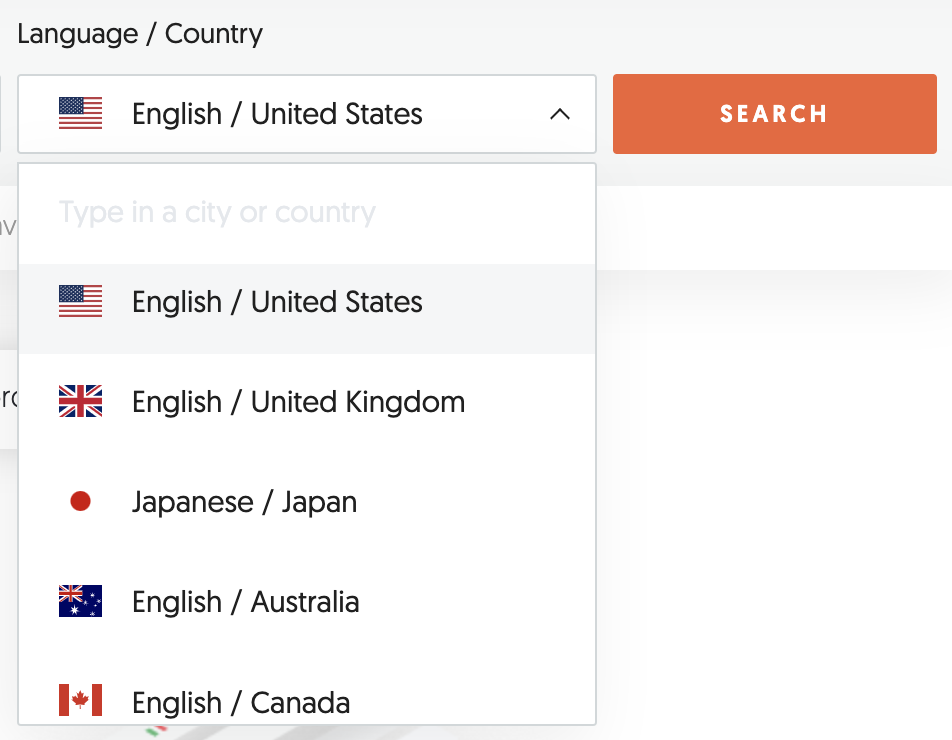Beyond Borders: The Next Frontier of SEO-- International Optimization
Beyond Borders: The Next Frontier of SEO-- International Optimization
Blog Article
Navigating the Digital Landscape: Leveraging International SEO for Cross-Border Success
In today's interconnected digital world, services are increasingly looking beyond borders to touch into international markets. The complexity of navigating the electronic landscape on a global scale demands a nuanced technique, from understanding the fundamentals of International SEO to carrying out geotargeting and multilingual search phrase strategies.
Comprehending International SEO Basics
Browsing the ins and outs of international search engine optimization needs a strong understanding of basic concepts to successfully broaden on-line visibility throughout borders. One essential aspect of global search engine optimization is recognizing the importance of localization. This includes customizing site web content to match the linguistic, cultural, and industrial distinctions of target audience. Key words must be not just converted but likewise adapted to show how users in various regions search for information.
Furthermore, having a clear understanding of geo-targeting is crucial. This entails showing to internet search engine the particular nations or areas an internet site is targeting. Implementing hreflang tags is one method to interact this information, making certain that the proper version of a website shows up in the search results page for a user in a certain place.
Additionally, comprehending the influence of regional search engines and social media systems is essential for international SEO success. While Google is leading in many regions, nations like China have their own search engines like Baidu, requiring tailored strategies for each system to optimize on the internet presence (International SEO).
.png)
Targeting Multilingual Keyword Phrase Techniques
Developing multilingual search phrase approaches is vital for properly reaching diverse worldwide audiences and optimizing online visibility throughout different linguistic areas. When targeting multilingual keyword methods, it is important to conduct comprehensive research study to recognize the particular search terms and phrases made use of by the target audience in each linguistic area. This involves not only translating key phrases yet also thinking about cultural nuances, regional languages, and search fads special to each target market.
To create an effective multilingual keyword phrase technique, it is essential to prioritize importance and search intent. Key phrases must align with the web content on the website and resonate with the cultural context of the target audience. Using tools such as Google Key Words Coordinator, SEMrush, or Ahrefs can aid determine high-performing key words in various languages and assess their search quantity and competitors degree.
Moreover, tracking and analyzing the performance of multilingual keywords on a regular basis is necessary for optimizing and fine-tuning the method with time. By continually adjusting to adjustments in search habits and trends, companies can improve their on-line presence and bring in even more international web traffic to their websites.
Carrying Out Geotargeting and Hreflang Tags
When intending to improve global SEO methods, including geotargeting and hreflang tags is critical for maximizing website exposure throughout different areas. Geotargeting entails customizing content to specific places, making sure that customers in different areas get pertinent information. By applying geotargeting, services can enhance their regional search rankings and bring in region-specific website traffic.

Optimizing Site Framework for Worldwide Exposure
To better boost worldwide search engine optimization approaches past geotargeting and hreflang tags, maximizing the web site framework is critical for achieving global presence and optimizing reach across various regions. A well-structured internet site not only boosts user experience but likewise facilitates internet search engine crawlers in understanding the material and context of the website. When going for global exposure, it is important to make sure that the internet site is organized in a sensible fashion that satisfies customers from different countries. Applying a clear power structure with distinctive classifications and subcategories can assist in improving the website's navigation and user-friendliness.
Additionally, creating language-specific subdirectories or subdomains can aid look engines provide the best version of the web site to individuals based on their language choices, further enhancing the general user experience. In addition, maximizing link frameworks to include relevant search phrases and geotargeted terms can enhance the website's exposure in various areas. By structuring the website properly for international audiences, services can enhance their chances of attracting worldwide website traffic and expanding their reach throughout borders.

Monitoring and Analyzing Cross-Border Efficiency
Reliable surveillance try this web-site and analyzing of cross-border efficiency is important for reviewing the success of global SEO strategies and determining opportunities for enhancement in global reach and presence. By carefully tracking key efficiency indications (KPIs) throughout different markets, services can get important understandings into the performance of their cross-border SEO efforts. Monitoring metrics such as organic website traffic, keyword rankings, conversion prices, and bounce prices can provide a thorough view of exactly how well a website is carrying out in different regions.
Examining cross-border efficiency data allows companies to recognize trends, patterns, and areas for optimization. By contrasting performance throughout various countries, regions, or languages, business can determine effective methods and localize web content to better satisfy certain target audiences. Additionally, checking cross-border performance makes it possible for businesses to remain dexterous and responsive in the ever-evolving electronic landscape. Routine evaluation of SEO performance on a global range makes sure that firms can adjust their approaches quickly to maximize emerging opportunities and maintain an one-upmanship in global markets.
Verdict
Finally, global why not check here search engine optimization plays a critical function in attaining cross-border success by enhancing sites for global exposure, targeting multilingual search phrase approaches, implementing geotargeting and hreflang tags, and keeping track of cross-border performance. By recognizing click to read more the basics of worldwide search engine optimization and enhancing site frameworks accordingly, businesses can properly reach and involve with their target market across various areas and languages. This strategic strategy is vital for expanding market reach and driving online development in today's digital landscape.
Report this page